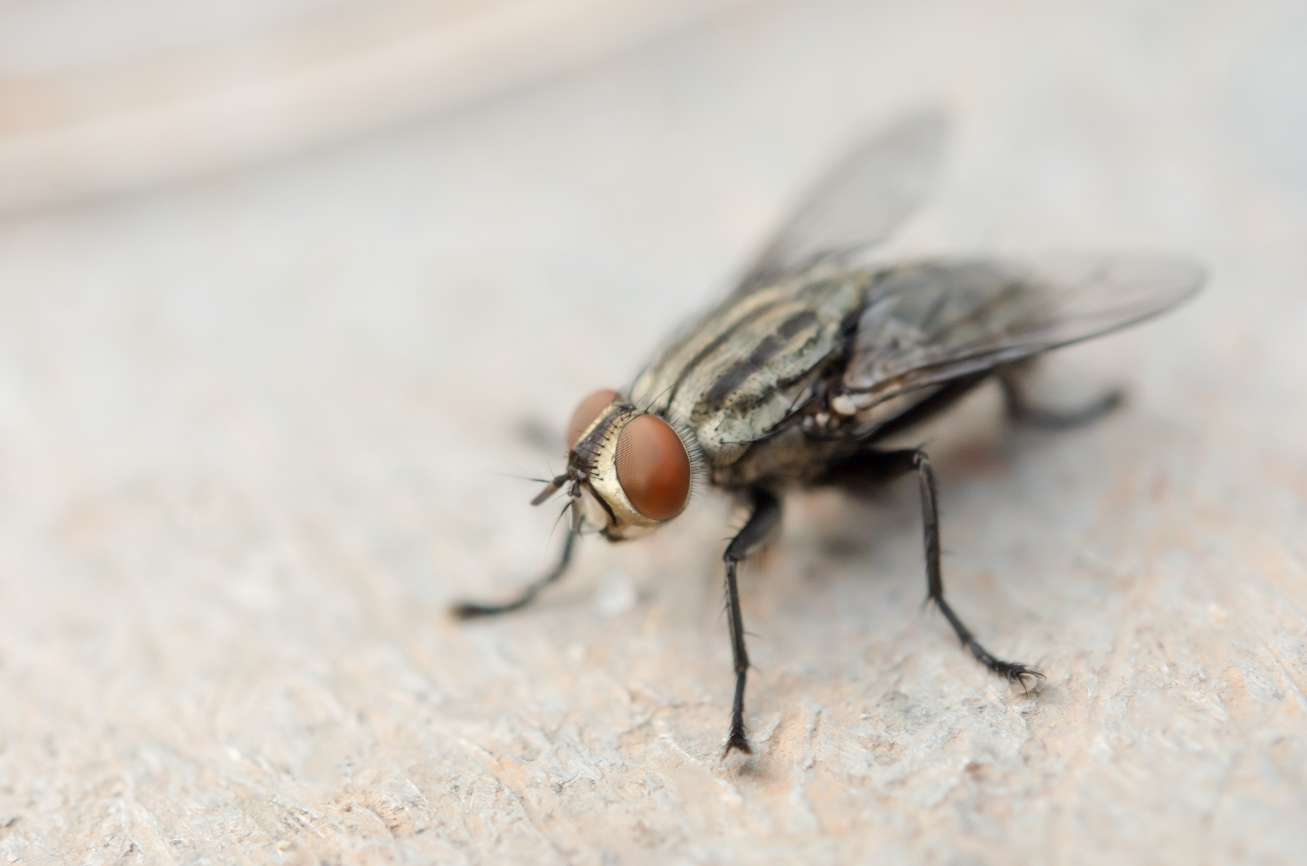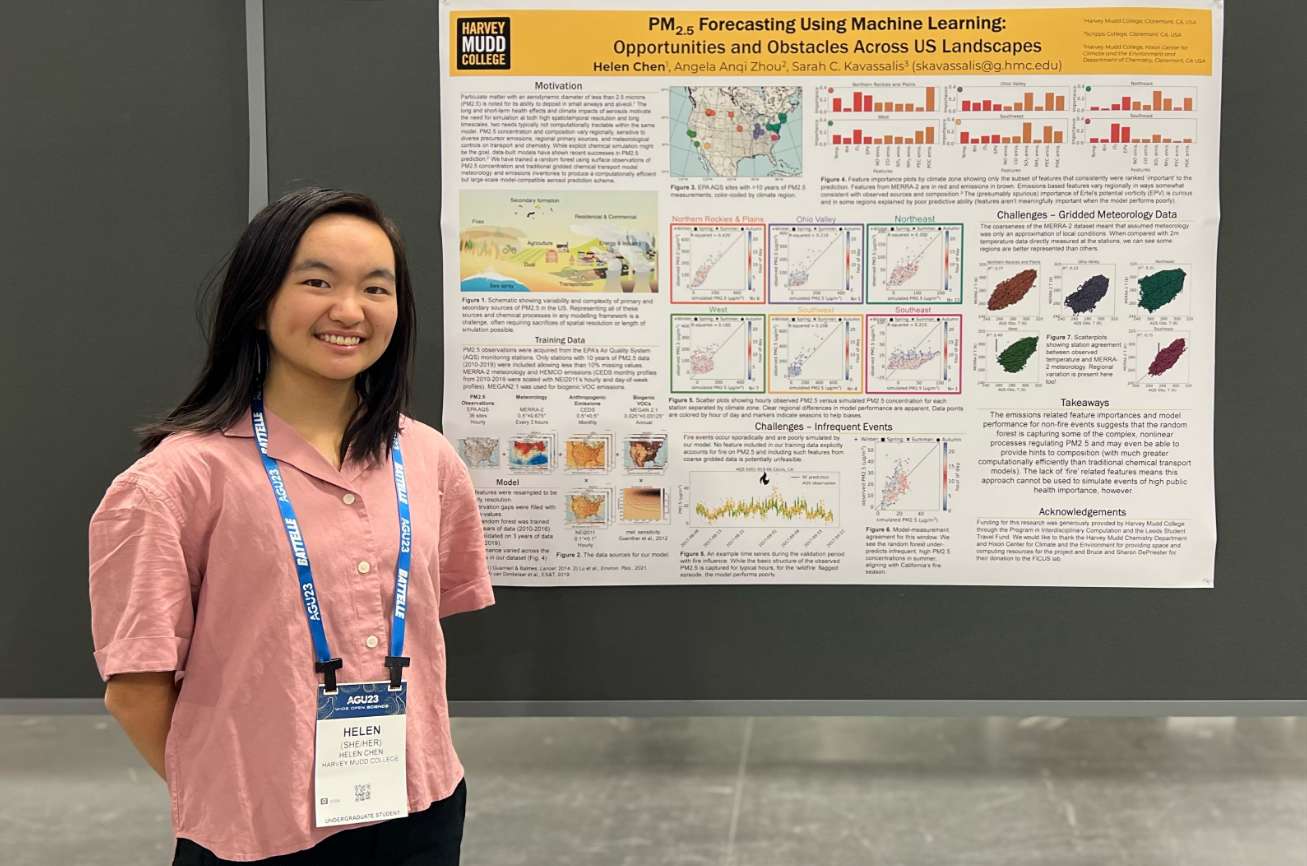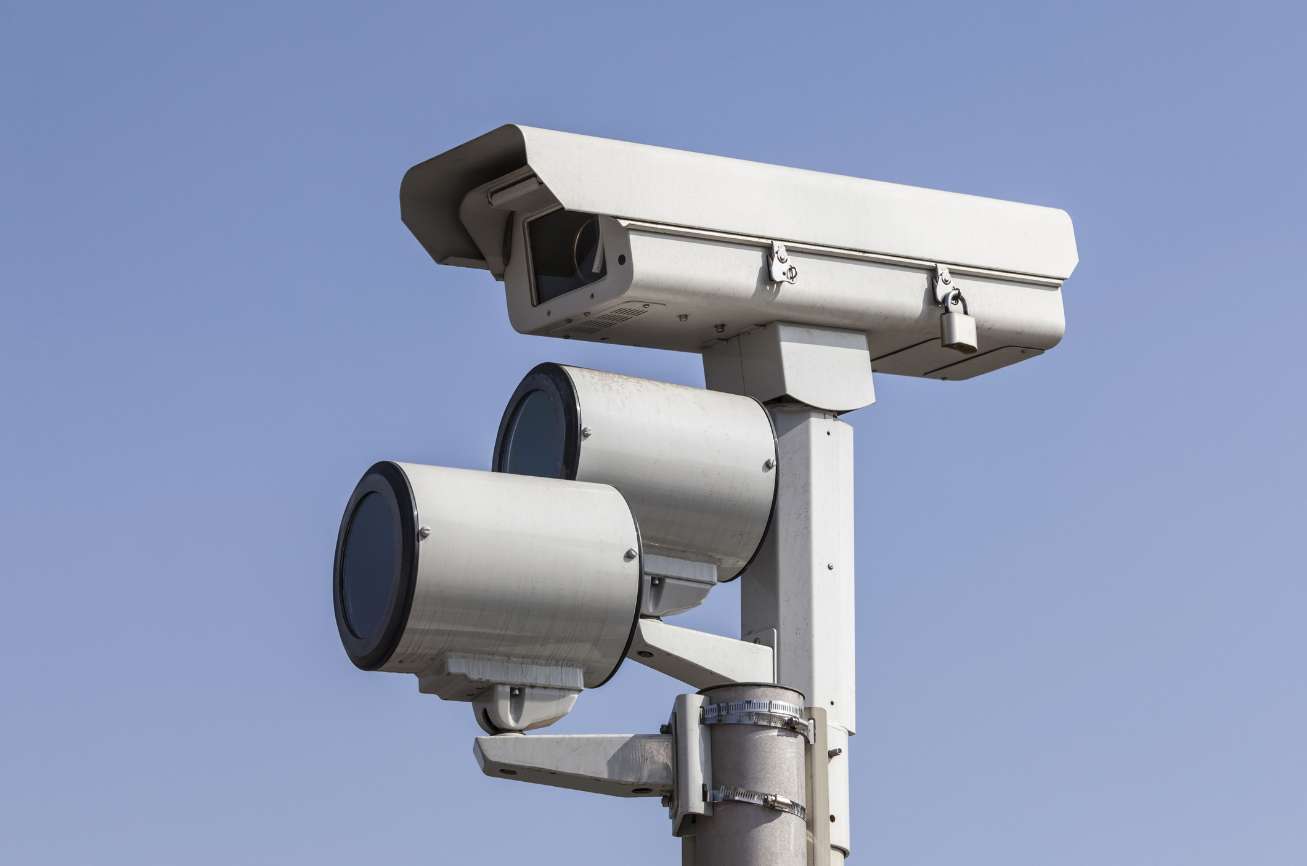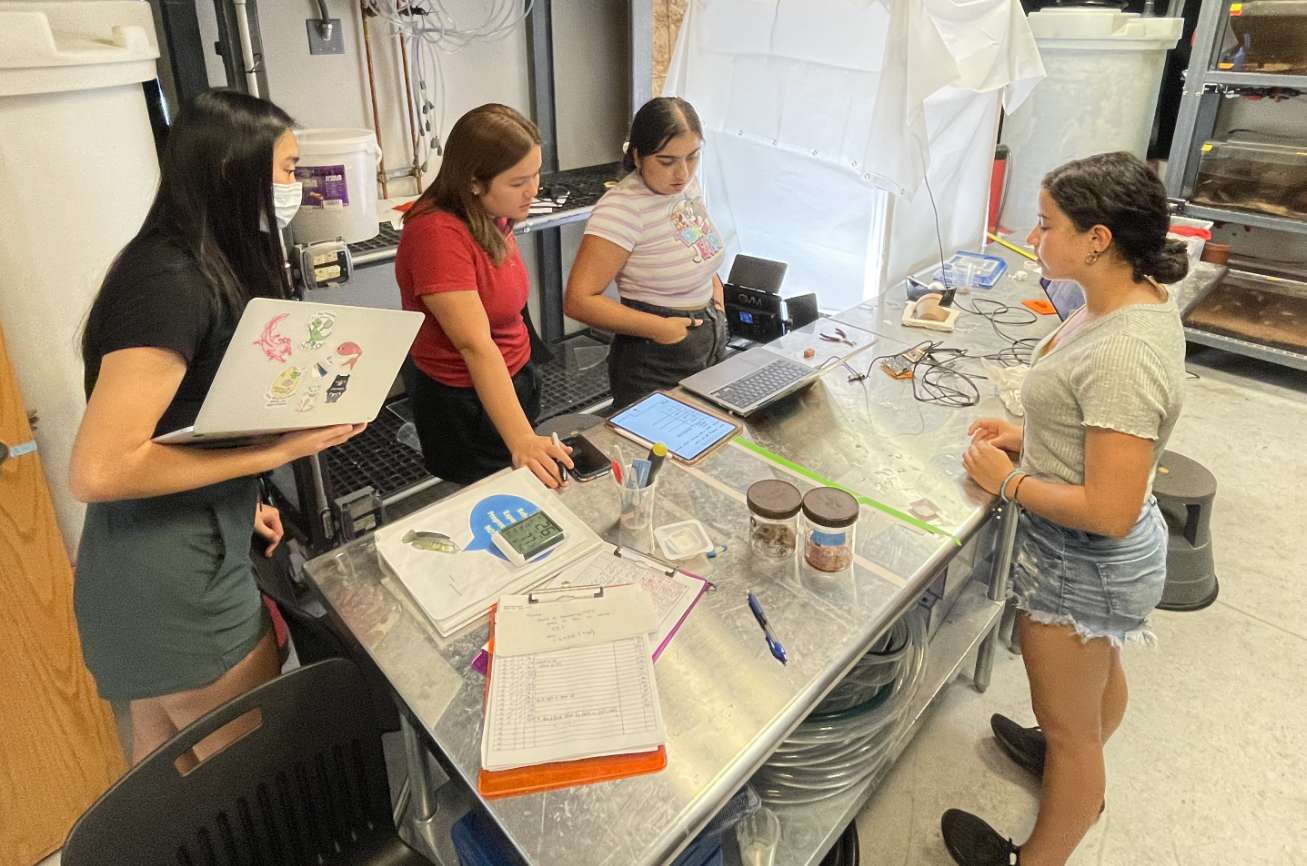Summer Research
More than 175 students and nearly 45 faculty participated in the 2023 Summer Research Program. Projects ranged from fly health to animal-robot interaction. Here is a sampling of summer research activity.
Biology
Mitochondrial Protein Degradation in Fly Health
Advisor: Jae Hur, associate professor of biology
Students: Chadinthon “Minnie” Kittivorawong, Joshua Zhong, Malina DiBlasi
Professor Hur’s research teams have been studying a protein called ClpXP, which acts like a cleanup crew inside cells. Its job is to break down and remove damaged proteins, making way for new and healthy ones. The team found that ClpXP is especially active in the mitochondria, the cell’s powerhouses, where a lot of damage linked to aging happens. In earlier studies, scientists found that a bit more ClpXP could make flies live longer. Now, they’re exploring in more detail how this protein affects the mitochondria. It seems that having more ClpXP not only helps get rid of damaged proteins but also reduces an important protein complex related to metabolism in the mitochondria. The researchers are digging deeper to determine what role increased protein degradation and decreased metabolic activity might have on the health and lifespan of flies.

Hixon Center/Chemistry
PM2.5 Forecasting Using Machine Learning: Opportunities and Obstacles Across U.S. Landscapes
Advisor: Sarah Kavassalis
Students: Helen Chen, Angela Zhou (Scripps)
Exposure to particulate matter less than 2.5 micrometers in diameter (PM2.5) presents profound health and environmental implications, driving the need for appropriate representation in air quality and Earth system models of all scales. Using machine learning, the team demonstrated a computationally efficient alternative to mechanistic PM2.5 prediction across diverse U.S. landscapes. Their approach makes highaccuracy predictions with significantly reduced computational needs. Data-driven predictions have essential limitations, though, particularly in areas of disparate data density, changing photochemical production regimes and disruptive phenomena such as wildfires.

Computer Science
ML Pipeline Optimization When Querying Video Data
Advisor: Arthi Padmanabhan POM ’14, assistant professor computer science
Student: Alejandro Wang
While machine learning is seeing explosive growth, it can often be difficult to use, requiring knowledge of several models, data formats and frameworks. For example, if one wanted to respond to an Amber Alert using automated video analysis on traffic footage, they would need to string together at least a model that could detect cars and a model that could read license plates. Over the summer, Wang worked on making such complex, realistic queries easier to run and more accessible for people without a machine-learning background. He built a framework for turning queries from an easyto-use query language into a directed acyclic graph of machine-learning tasks.

Engineering
A Robotic Test Bed for Studying Hunting Behavior
Co-advisors: Alberto Soto, postdoctoral scholar in interdisciplinary education, and Chris Clark, director, Lab for Autonomous and Intelligent Robotics, professor emeritus of engineering
Collaborator: Tessa Solomon-Lane, assistant professor of neuroscience, Keck Science Department
Students: Alisha Chulani, Emily Barr, Holly Chen, Angelina Rodriguez
Researchers sought to build an experimental system using robotics and computation to better understand animal behavior, specifically to determine if the behavior of animals, in this case fish, is either influencing the behavior of a robot or the behavior of the robot is influencing the behavior of the animals. A small, wheeled robot under the fish tank was attached magnetically to a fishing lure that resembled a small bait fish that moved inside the tank when the robot moved. Using videos from an overhead camera, students witnessed the robot responding to the position of the fish and the fish responding to the movement of the robot.

Entrepreneurship
Doppler Shift-Based Vehicle Data Transmission
Advisor: Kash Gokli, Oliver C. Field Professor of Manufacturing Practice and Engineering Economics and director of entrepreneurship initiatives
Students: Devon Overbey, Xander Fries, Pierce Gruber
The entrepreneurial startup, Axolotl Audio was formed by three engineering students who seek to increase road safety and democratize traffic data through innovative solutions to age-old problems. Leveraging Doppler-based audio analysis, they have developed an intricate microphone amplification circuit, overcoming voltage challenges and noise interference. They are refining algorithms for speed extraction via the Doppler shift, encompassing data collection, signal enhancement, frequency analysis and precise speed calculation. This pioneering approach will save lives, enhance road safety and benefit society while significantly reducing the financial burden associated with conventional data collection methods.
